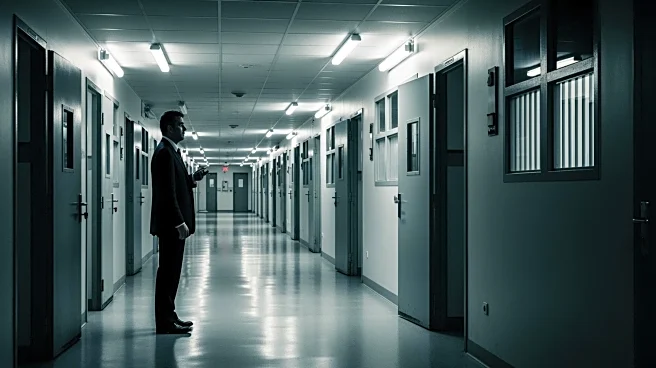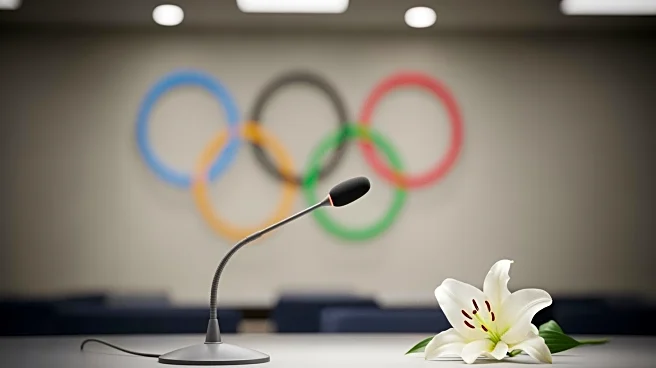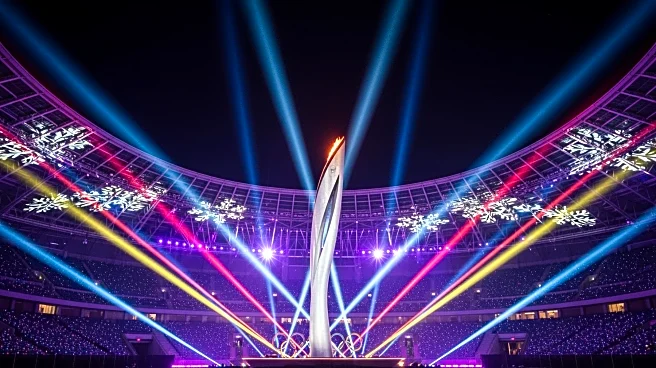What's Happening?
In a relocated international friendly match, Argentina triumphed over Puerto Rico with a decisive 6-0 victory. The game, initially scheduled to take place in Chicago, was moved to Fort Lauderdale due to low
ticket sales and an immigration crackdown in Chicago. Lionel Messi, playing on his home field with Inter Miami, contributed significantly with two assists. He set up Gonzalo Montiel's goal in the first half and facilitated Lautaro Martínez's second goal in the 83rd minute. Alexis Mac Allister scored twice for Argentina, which also benefited from an own goal by Puerto Rico. The match featured Argentina, ranked third globally by FIFA, against Puerto Rico, ranked 155th, with some college players in its lineup. Despite the mismatch, Puerto Rico's goalkeeper Sebastian Cutler made notable saves against Messi. The match was part of Argentina's preparations for the upcoming World Cup, set to be hosted in the U.S., Mexico, and Canada next year.
Why It's Important?
The relocation of the match highlights the impact of immigration policies on international events, as the crackdown in Chicago influenced the decision to move the game. This event underscores the challenges faced by cities hosting international sports events amidst political and social issues. Additionally, the match serves as a preparatory step for Argentina ahead of the World Cup, emphasizing the importance of international friendlies in team development. The presence of Lionel Messi, a global soccer icon, draws attention to the match, affecting ticket sales and audience engagement. The game also illustrates the disparity in global soccer rankings, showcasing the competitive gap between top-ranked teams and lower-ranked ones.
What's Next?
Argentina will continue its preparations for the World Cup, focusing on refining strategies and team dynamics. The upcoming World Cup, scheduled for next year, will be a significant event, with matches held across the U.S., Mexico, and Canada. The relocation of this friendly match may prompt discussions on the logistics and security measures for hosting international events in the U.S. President Trump's comments about potentially relocating World Cup matches could lead to further scrutiny and debate over the hosting arrangements and political implications.
Beyond the Headlines
The relocation of the match due to immigration issues highlights the intersection of sports and politics, raising questions about the influence of domestic policies on international events. The decision to move the game reflects broader concerns about the impact of political climates on cultural and sporting exchanges. Additionally, the match serves as a reminder of the global reach of soccer and its ability to bring diverse communities together, despite political and social challenges.








